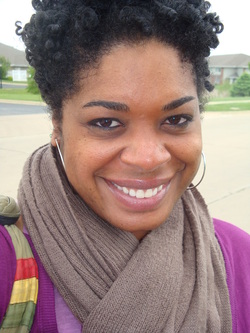 This week I’ve been reading Baratunde (Rafiq) Thurston’s How To Be Black. I first saw it in one of Chicago’s O’Hare bookstores at least 8 months ago but I intentionally did not pick it up because I had another book on my person that I hadn’t finished reading. I didn’t need more weight in my luggage and bags, especially when I had enough reading for one weekend. Now that I’ve got it on interlibrary loan from my campus’ university, I love it. Or I loved it. I loved it when I was flipping and reading the parts that were of immediate interest to me. Then when I started to peruse chronologically, I realized I liked it. What I mean by that is that there seem to be chapters that are geared to my life and this particular phase of it, for example, “How Black Are You?” But, in some places, it’s much more of a memoir than an exegesis on ‘the state of things.’ It’s not bad anywhere; it’s just that sometimes it’s holding up a mirror and at other times, for example in talking about a famed Quaker school called Sidwell, it’s a window. This morning, however, I came across a chapter called “Have You Ever Wanted to Not Be Black?” Thurston interviews a handful of friends/colleagues who are black to get their response. And I paused a bit wondering what my own reply would be. And after 3.5-4 seconds, I realized my answer was, “No.” And therein this blog post was born. I love this new epiphany of mine that we answer the questions that are asked of us. So, here’s to this one: Have you ever wanted to not be black? No. I’ve wanted others to allow me to be black in my own way and to dispel preconceived notions of what that means. But I have never wanted to not be black. I’ve want to run away from the hot comb, Just For Me chemical hair relaxer and time-consuming twist-outs. I’ve wanted to take less time prepping in the morning and lotioning my body. I’ve wanted swimming and sweating to be less of a burden. I’ve wanted to encounter fewer ignorant people like the young man who told me to go back to Africa in the 5th grade. …to stop being associated with loudness, aggression, sexually explicit dance, anger, the violence, gangs and drugs of the inner-city… but no, I’ve never wanted to not be black. Blackness is beautiful. Some of my favorite moments are when my skin is pressed up against that of a dark-skinned man and our bodies look like delicious chocolate and caramel candies. I love the curly definition of my hair (on good hair days). The voluptuous volume of my lips. The womanly curves of my body. The generous symmetry of my nose. And my flirtations with beautiful, African men. The amber shade of my eyes in the sunlight. The freckles on my nose. The Caribbean cuisine in my father’s kitchen. The gumbo in my grandmother’s. The anonymity/fact that I could be from Panama, Puerto Rico or Paraguay and no one would be the wiser. I happen to love giant hoop earrings. R&B, some hip-hop and a dash of neo-soul. Creativity and creation. And curls. Did I mention curls? What I don’t like are · despair · low expectations · willful victimization · the glorification of ignorance · being late · being monolithic · being homogenous · group think · voluntary segregation · inflexibility · having to wear blinders to fit in · no room for dissent or contradiction · watermelon (or cucumbers or PB&J sandwiches or bleu cheese for that matter) · the glorification of a poor ‘n’ deadly diet · turning in assignments late · reading from only one cannon · having the terrain(s) I’m allowed to visit determined by someone other than myself and my loved ones · having what I consume determined by someone other than myself and my loved ones · being told how I feel · being told who I am · being told where my loyalties lie But no, I’ve never not wanted to be black. I’ve always wanted the freedom, however, to determine what blackness means to me. I’ve wanted self-determination and not the U.S.’ dominant culture via the media to tell me what authenticity looks like and feels like or for my peers and perceived ‘community’ to do so. I’ve wanted to only have to answer to Kirk and Notachai Spencer, my progenitors, and to lead a life of humanity [and blackness] that is pleasing to them and God. And so far, I think that [mostly] I’m doing a good job. And then after I wrote this, I read the chapter that motivated my response. Good and similar stuff found therein.
1 Comment
sister
6/5/2014 08:03:36 am
Like
Reply
Leave a Reply. |
AuthorMy name is Katrina Spencer. I'm a librarian. Archives
February 2020
Categories |
 RSS Feed
RSS Feed